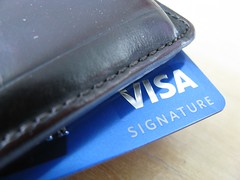The Beating Broke Guide to Your Credit Score is a guide that I wrote a while back, that has been available as a download here on the site as a .pdf document for some time. With the recent rise in usage for ebook readers, I thought it was time that it got converted over and presented as a kindle ebook. So, that’s exactly what I did last weekend. It’s now available in the Kindle store on Amazon for only $0.99. It’s still available as a pdf download here for free, if that’s what you want, but I know some would rather have it directly on their reader. It’s also been made available in the epub format (free) on Smashwords.

I started this blog to share what I know and what I was learning about personal finance. Along the way I’ve met and found many blogging friends. Please feel free to connect with me on the Beating Broke accounts: Twitter and Facebook.
You can also connect with me personally at Novelnaut, Thatedeguy, Shane Ede, and my personal Twitter.


